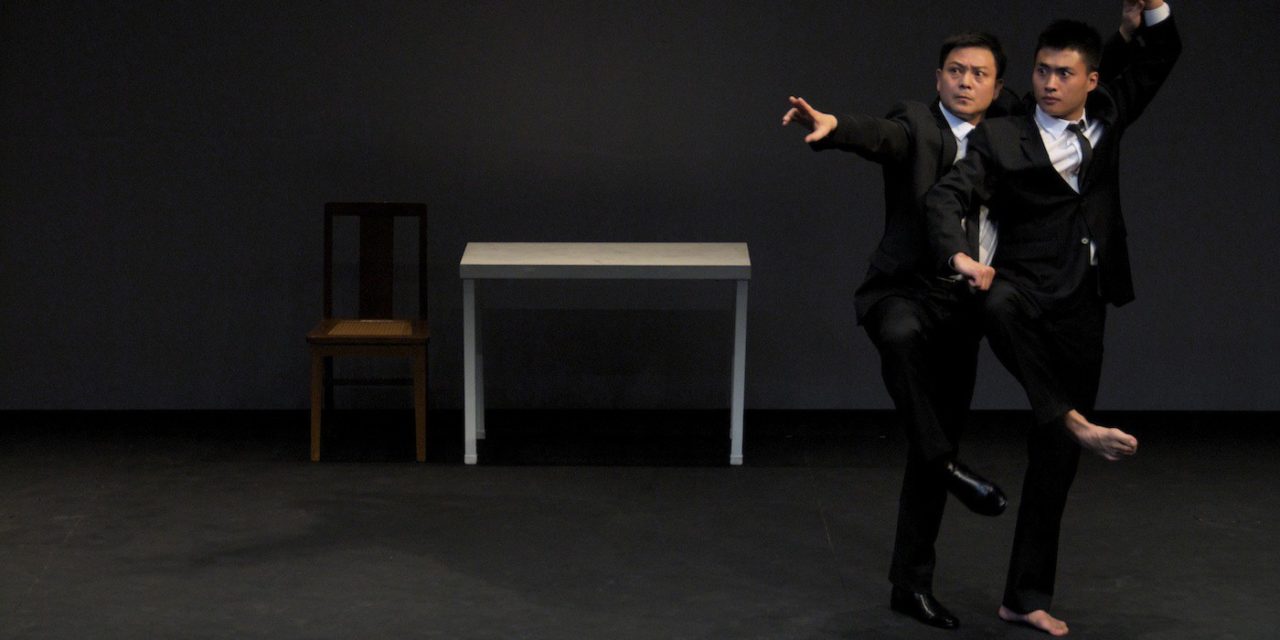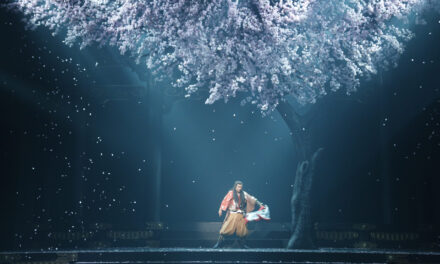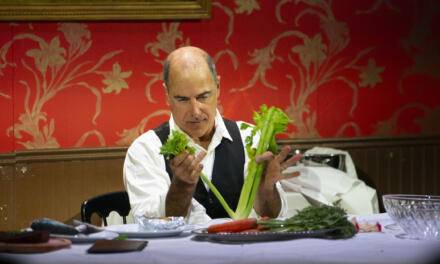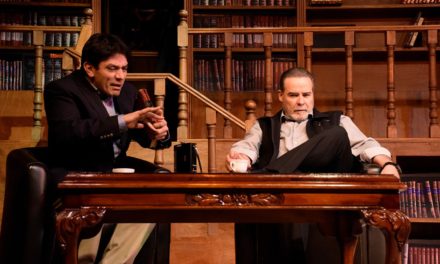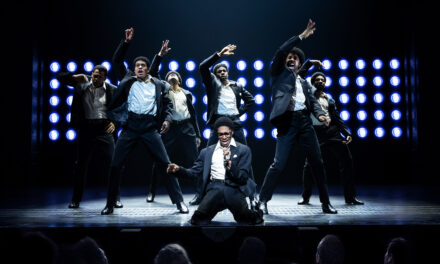Among Hong Kong’s artists, designers, playwrights and stage directors are polymaths who somehow manage to do all of these things at once–multidisciplinary mavens who, through their own grit, ambition, strategic acumen, and willingness to try new things have propelled the city’s cultural sphere to places the faint-hearted would not have had the courage to have taken it.
Danny Yung is one of these people. He is the driving force behind Hong Kong’s experimental theatre company Zuni Icosahedron, and his widely acclaimed works run the gamut of installation art, performing art, multimedia, and theatre. He is a pioneering video artist, director, playwright, while also playing an invaluable part in cross-city arts advocacy for decades. His theatre works have been staged in cities across the world, including Tokyo, London, Singapore, Rotterdam, and New York. He has won several awards, including the Music Theatre Now award given by the International Theatre Institute of UNESCO.
In person, he has jovial features, a warm smile, and an endearing, generous laugh, and yet it is also a somewhat distant and intimidating figure. Born in Shanghai, he moved to Hong Kong when he was four, and spent several years in the United States, first studying architecture at the University of California, Berkeley, and then urban design at Columbia.
As an interviewee, he certainly does not suffer fools–nor does he want to respond to questions that seem trite or vague. Perhaps his mild impatience is understandable. He has worked tirelessly since the late 1970s and has endured many interviews.
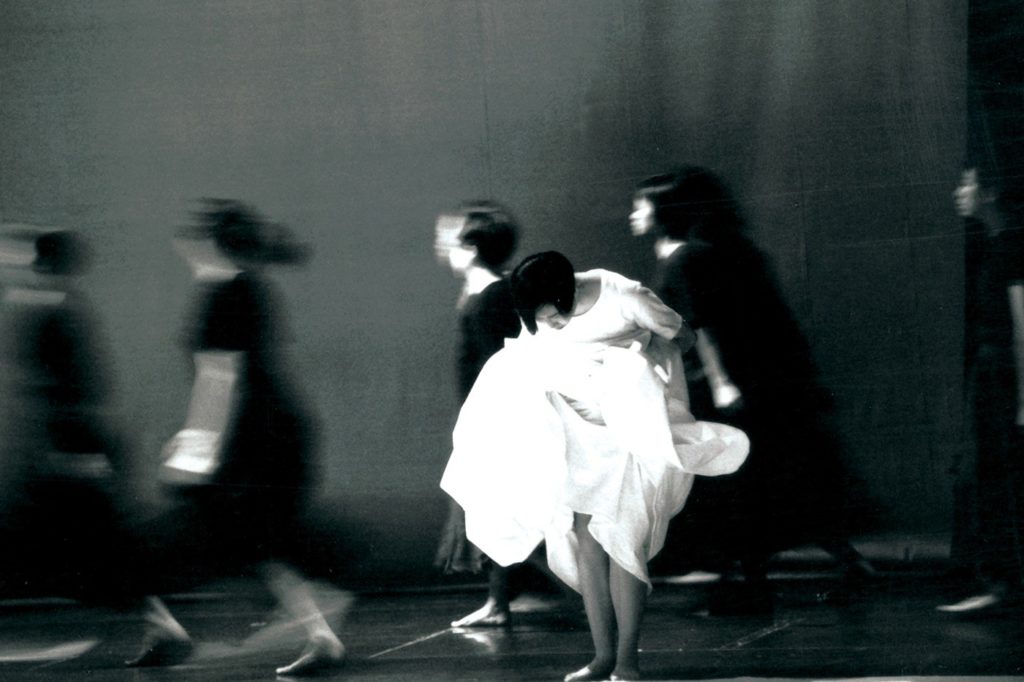
One Hundred Years Of Solitude explores themes of community, repetition, and forgetting. Photo courtesy: Zuni Icosahedron
This is not to say he is ungracious in his answers or unkind in his manners. He is just highly conscious of his time. In terms of his outlook on life, the arts, and the future of his city, he describes himself as a pessimist–but one who is “always positive,” which is to say that despite whatever struggles lie ahead for Hong Kong, the city still has certain assets that give it both an edge and a degree of bilateral leverage.
Yung is an example of how Hong Kong can breed luminaries that use the complicated nature of their hometown to speak to a global audience. It’s precisely the complexities of Hong Kong that inspire him to fuse together diverging ideas and probe their boundaries. A key tenet of experimental art is constantly questioning your beliefs and ideas about your place in the world. It’s a quality that we need now more than ever.
One Table Two Chairs is an example of this. This performance art piece uses minimal stage props in a way that references Kunqu Opera, one of the oldest forms of Chinese opera, but which invites contemporary and classical dancers from across the world to improvise with the theme. One version of this is a work of Yung’s called Journey to the East–One Table Two Chairs, inspired by the Franz Kafka novel The Trial, which uses mirrors to create the illusion of endless space on stage.
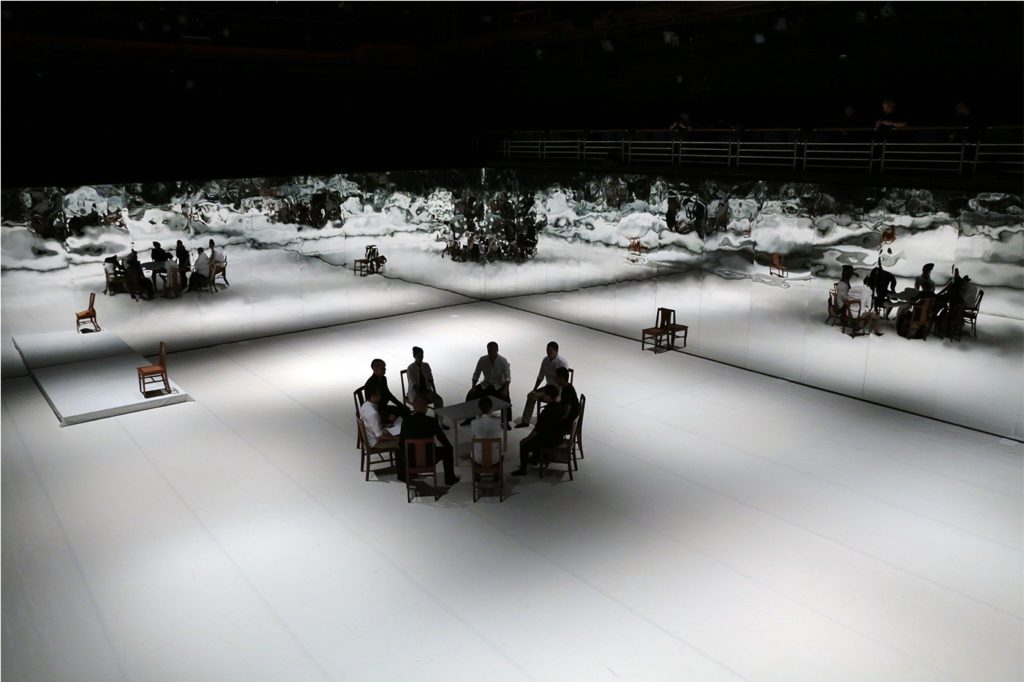
Mirrors create the illusion of endless space on the stage of One Table And Two Chairs–by Danny Yung–Photo courtesy: Zuni Icosahedron
In another project is Zuni’s frequent adaptation of Gabriel García Márquez’s One Hundred Years Of Solitude, every staging of which invites new ways to explore themes of community, repetition, and forgetting.
True to Yung’s mission of better bilateral understanding, Zuni’s latest edition involves a collaboration between 12 directors from different cities including Beijing and Singapore. With so many different directors on board, one might have anticipated a rather chaotic final product, especially as the book itself is a mammoth read. But Yung set ground rules to keep the show cohesive, encouraging directors to stick to the theme of the work, which is about indefatigable characters and the energy and commitment they bring to their endeavors.
By staging repeated Marquez adaptations, Yung hopes he will inspire his audience to reflect on what it means to inhabit this world. “When I talk about cultural development, I’m not talking about the development of dance and songs, I’m talking about how do we think, how do we relate to each other, how do we relate to our language, how do we relate to our media,” he says.
It’s an ambitious mission–one Zuni has pursued since it was founded in 1982. It has staged more than 190 original theatrical or multimedia production since then. Although it is now one of the few major Hong Kong government-supported art institutions, Zuni started as a collective of young individuals. This was in the 1980s, a time of economic boom that saw Hong Kong transform into a financial powerhouse. Despite the thriving economy, it was hard to convince the city’s many pragmatists of the values of supporting cultural institutions that dared to think differently and take creative risks. The colonial government of the time wasn’t particularly interested in supporting their mission, either.
But Yung and his partners pressed on. “As an arts collective, we were a very committed group of individuals, and when you’re very committed, you just don’t give up,” he says. The 1990s saw more success in garnering government support, alongside an increasingly concerted effort to establish strong ties with arts groups abroad. Even today, a key aim for Yung is maintaining these international ties–seeing potential in the usage of arts as to help foster channels for communication and exchange.
“We believe cultural exchange is very important to cultural development, and we also believe that cultural exchange [is important to] dialectical, interactive, economy-based exchange and collaboration,” he says.
While expanding his own creative endeavors—which at that point was particularly inspired by videography from Japan, Germany, and America—Yung also started campaigning for better arts infrastructure and representation. Chris Patten was governor at the time and he asked Yung and other members of the arts community whether they would support a public body that could fund the arts. “What we were very concerned about was whether we could have members to sit on the council who were from the community,” says Yung. “So we proposed to the government that we could have elected members to the council–and we succeeded.”
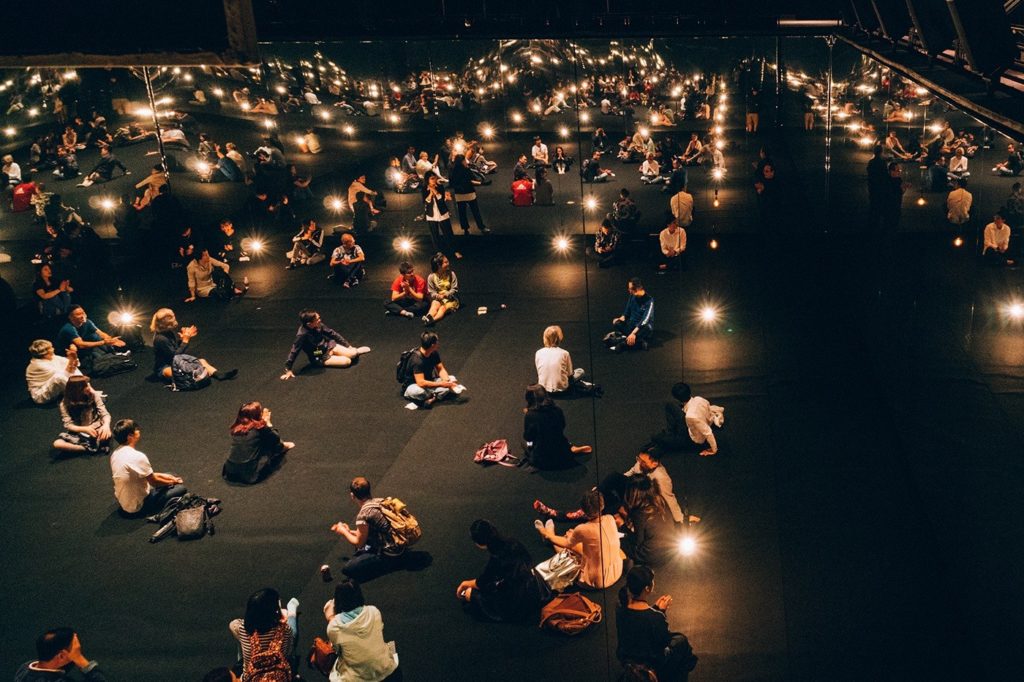
Freespace Tech Lab by Mathias Woo involves electronic music, lighting and novel uses of space. Photo courtesy: Zuni Icosahedron.
Fast forward more than two decades and Zuni has fresh geopolitical challenges to confront, not the least of which is Hong Kong’s contentious relationship with mainland China. Yung’s latest project is a cultural forum that revolves around One Belt One Road, the Beijing-led economic initiative that seeks to expand China’s economic influence abroad. As part of the forum, Zuni will invite international artists to discuss the cultural—and not just economic—implications of this much-hyped scheme.
Like many theatre and performing arts stalwarts of his generation internationally, his interest in telling stories also means he is interested in using new technology to record them. In the 1990s and early 2000s, Yung was particularly curious about exploring video art, garnering international acclaim with a piece called Video Circle that involved drawing upon the I Ching, a Chinese divination text, while screening a series of short films on television sets, bringing together pieces from artists from across the region.
“Technology changes our environment and our way of thinking, our way of communicating, and I think of course sometimes the technology moves faster than we think,” says Yung. Zuni is trying to keep up: Zuni recently launched a new program with the West Kowloon Cultural District that explores the crossover between stage performance and technology. Spearheaded by Zuni’s co-artistic director, Mathias Woo who is also the creator, artistic director and spatial designer of Freespace Tech Lab, turns the Studio Theatre of Hong Kong Cultural Centre into a mirror-clad theater space equipped with various advanced technological equipment. The project explores different areas in theatre production including sound, light, and space.
As always, a key thread that runs throughout this is bringing together diverging disciplines and people. For Yung, creative crossover is where the magic happens. “When you do exchange it’s almost like looking at a mirror,” he says. “Because only in the mirror [do] you see what’s behind your head.”
For more information on Freespace Tech Lab, click here.
The series of events pegged to the theme of One Belt One Road will take place at Hong Kong Cultural Centre from December 1 to December 10, 2017. For more information, click here
This article was originally written by Sarah Karacs for Zolima CityMag on November 23, 2017. Reposted with permission.
This post was written by the author in their personal capacity.The opinions expressed in this article are the author’s own and do not reflect the view of The Theatre Times, their staff or collaborators.
This post was written by Zolima CityMag.
The views expressed here belong to the author and do not necessarily reflect our views and opinions.

